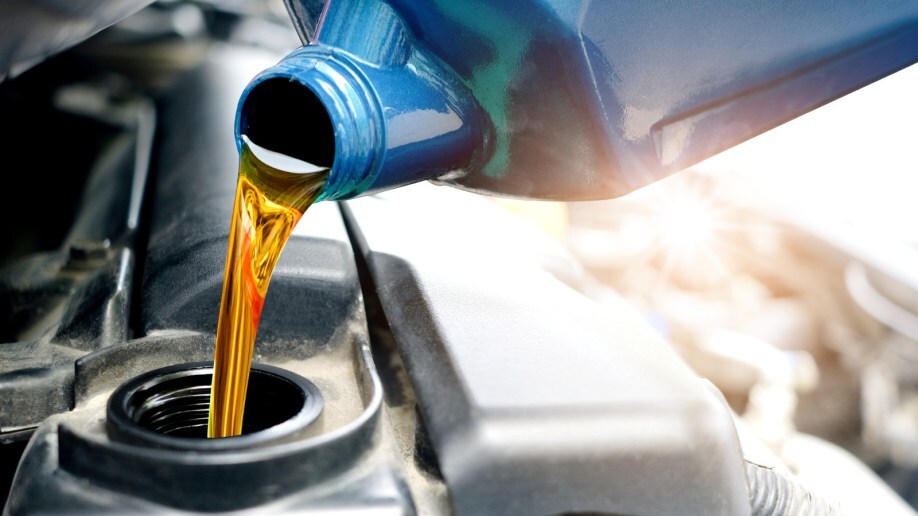Optimize Your Cars and truck'S Performance With Normal Oil Changes
Keeping your car's efficiency is a multifaceted undertaking, with regular oil adjustments sticking out as a critical aspect. Fresh engine oil plays a pivotal function in ensuring ideal lubrication, reducing rubbing, and protecting against wear on crucial elements. This technique not only improves gas efficiency however additionally fosters a much healthier engine environment. Numerous motorists forget the indicators that suggest a demand for an oil change, potentially endangering their lorry's longevity. Comprehending these indications and the advantages of prompt maintenance might bring about significant renovations in your vehicle's general efficiency. What might you be missing out on?
Significance of Regular Oil Changes
While many car owners might forget the value of normal oil modifications, ignoring this essential maintenance task can lead to extreme effects for engine efficiency and longevity. Engine oil plays a vital role in oiling relocating parts, reducing rubbing, and protecting against getting too hot. In time, oil wears away as a result of direct exposure to warmth and impurities, which diminishes its performance.
Falling short to transform the oil frequently can cause the build-up of sludge and debris, which can block important engine components and lead to enhanced wear. This not just endangers engine effectiveness but can additionally lead to costly fixings and even total engine failing. Additionally, old oil sheds its capability to counteract acids created throughout combustion, which can lead to rust and further damages.
Furthermore, several car manufacturers suggest specific oil modification intervals, commonly based on gas mileage or time. Following these standards is important for keeping warranties and making certain optimal automobile performance. In summary, normal oil changes are not simply a suggestion; they are a necessary component of liable car upkeep that safeguards the engine and boosts overall performance. Prioritizing this job will contribute substantially to the longevity and dependability of any kind of vehicle. Oil Change Lockhart.
Benefits of Fresh Oil
Transforming to fresh oil offers various benefits that directly improve engine efficiency and effectiveness. Among the key benefits of fresh oil is its premium lubricating residential or commercial properties. New oil minimizes friction between engine elements, which not only lessens wear however likewise adds to smoother procedure. This leads to enhanced gas effectiveness, as the engine does not have to work as difficult to conquer resistance.
In addition, fresh oil properly cleans up the engine by suspending contaminants and preventing sludge build-up. With time, oil comes to be polluted with dirt, metal fragments, and burning by-products. Routinely replacing oil makes certain that these unsafe compounds are removed, advertising a cleaner and much healthier engine environment.
Furthermore, fresh oil aids in optimum temperature level policy. It dissipates heat better, stopping overheating and potential damages to engine elements. This is particularly vital during peak performance scenarios, where heat build-up can hinder engine functionality.
Signs Your Oil Demands Changing
Engine oil is the lifeline of your lorry, and identifying when it needs transforming is important for keeping optimal efficiency - Oil Change Lockhart. Numerous indicators suggest that it's time for an oil change, and staying vigilant can protect against engine damage and expensive repairs
First, examine the color and uniformity of the oil. Fresh oil is typically amber and smooth, while old oil might show up dark and gritty, suggesting contamination and lowered effectiveness. An adjustment in thickness can also symbolize that the oil pop over here has actually broken down and is no longer appropriately lubricating engine elements.

An additional indication is the oil modification light on your control panel. This sharp functions as a pointer that the oil has actually reached its life-span or that there is an underlying issue needing interest. In addition, uncommon engine sounds, such as knocking or ticking, might recommend insufficient lubrication due to degraded oil.
Finally, if you see oil places or pools under your vehicle, it may indicate a leak that requires instant assessment and possible oil modification. Being conscientious to these indicators will certainly ensure your engine runs efficiently and successfully.
Picking the Right Oil
Picking the ideal oil for your automobile is crucial for making sure optimal performance and long life. This support will direct you towards the correct thickness quality, such as 5W-30 or 10W-40, which suggests the oil's thickness at various temperatures.
Next, take into consideration the kind of oil: traditional, synthetic, or a mix. Traditional oil is originated from unrefined oil and is appropriate for older cars, while artificial oil uses premium defense and performance for modern engines, specifically under extreme problems. Synthetic blends combine the advantages of both and are typically an affordable alternative.
Furthermore, look for oils that fulfill industry criteria, such as API (American Petroleum Institute) or ACEA (Association des Constructeurs Européens d'Automobiles) certifications. These indications guarantee that the oil has actually been evaluated for top quality and performance. Inevitably, selecting the appropriate oil not only boosts engine effectiveness blog here yet likewise adds to the overall wellness of your car, leading the way for smoother driving experiences.
Oil Adjustment Frequency Recommendations

Aspects click for more influencing oil adjustment regularity include driving problems, such as stop-and-go traffic, severe temperatures, and towing hefty loads. Under extreme conditions, it may be prudent to transform the oil a lot more frequently to avoid engine wear. Additionally, some modern-day cars come equipped with oil life tracking systems that provide tailored suggestions based upon driving practices, which can better optimize the oil adjustment schedule.
It's critical to consult your owner's guidebook for specific suggestions tailored to your lorry. Abiding by these guidelines not only maintains engine health however additionally improves gas efficiency and decreases exhausts. To conclude, routine oil adjustments, timed appropriately based upon numerous factors, are an essential facet of car upkeep that can significantly impact efficiency and long life.
Conclusion
